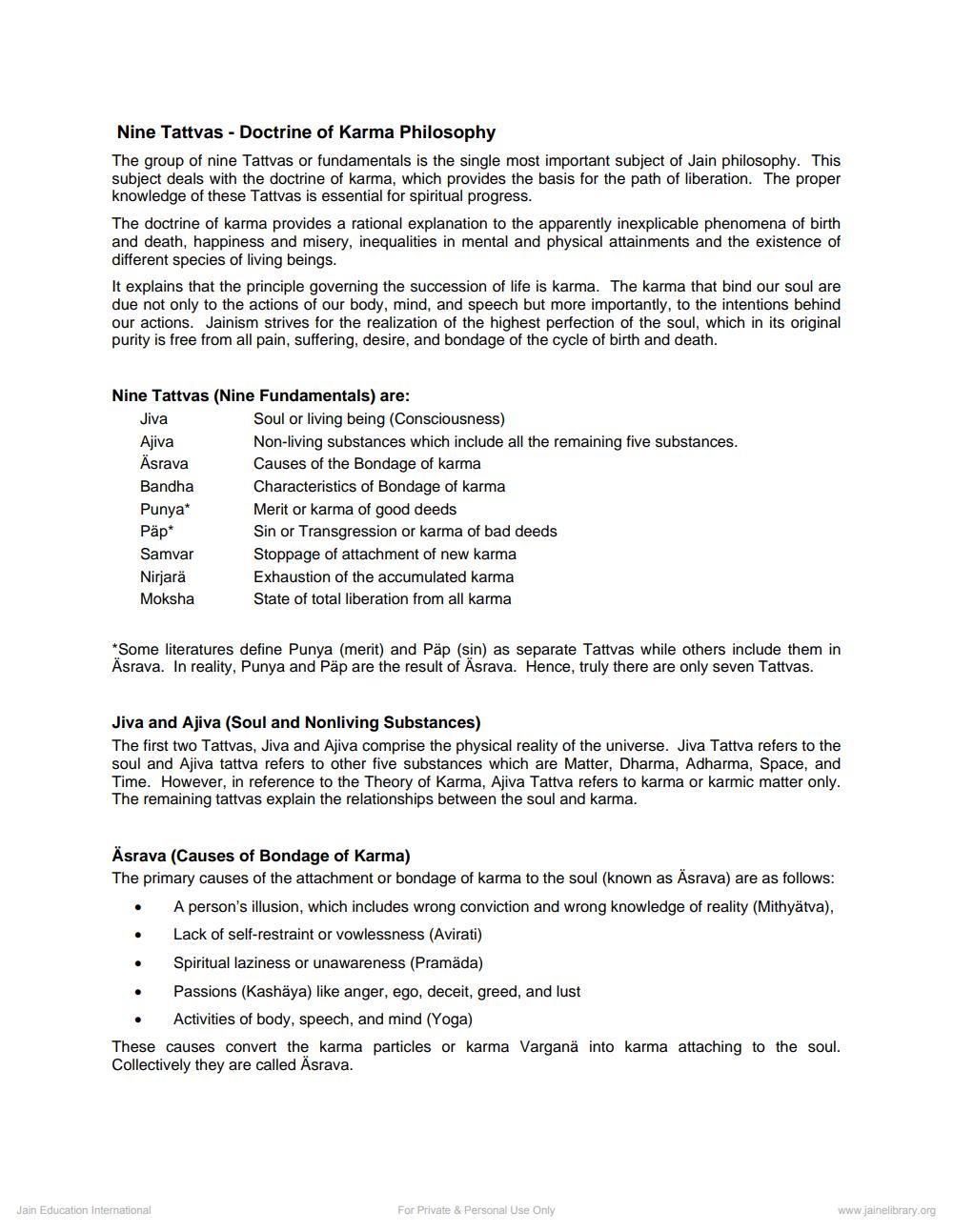________________
Nine Tattvas - Doctrine of Karma Philosophy The group of nine Tattvas or fundamentals is the single most important subject of Jain philosophy. This subject deals with the doctrine of karma, which provides the basis for the path of liberation. The proper knowledge of these Tattvas is essential for spiritual progress. The doctrine of karma provides a rational explanation to the apparently inexplicable phenomena of birth and death, happiness and misery, inequalities in mental and physical attainments and the existence of different species of living beings. It explains that the principle governing the succession of life is karma. The karma that bind our soul are due not only to the actions of our body, mind, and speech but more importantly, to the intentions behind our actions. Jainism strives for the realization of the highest perfection of the soul, which in its original purity is free from all pain, suffering, desire, and bondage of the cycle of birth and death.
Nine Tattvas (Nine Fundamentals) are: Jiva
Soul or living being (Consciousness) Ajiva
Non-living substances which include all the remaining five substances. Äsrava Causes of the Bondage of karma Bandha Characteristics of Bondage of karma Punya* Merit or karma of good deeds Päp*
Sin or Transgression or karma of bad deeds Samvar Stoppage of attachment of new karma Nirjarä
Exhaustion of the accumulated karma Moksha State of total liberation from all karma
*Some literatures define Punya (merit) and Päp (sin) as separate Tattvas while others include them in Äsrava. In reality, Punya and Päp are the result of Asrava. Hence, truly there are only seven Tattvas.
Jiva and Ajiva (Soul and Nonliving Substances) The first two Tattvas, Jiva and Ajiva comprise the physical reality of the universe. Jiva Tattva refers to the soul and Ajiva tattva refers to other five substances which are Matter, Dharma, Adharma, Space, and Time. However, in reference to the Theory of Karma, Ajiva Tattva refers to karma or karmic matter only. The remaining tattvas explain the relationships between the soul and karma.
Äsrava (Causes of Bondage of Karma) The primary causes of the attachment or bondage of karma to the soul (known as Asrava) are as follows: • A person's illusion, which includes wrong conviction and wrong knowledge of reality (Mithyätva),
Lack of self-restraint or vowlessness (Avirati) Spiritual laziness or unawareness (Pramäda) Passions (Kashäya) like anger, ego, deceit, greed, and lust
Activities of body, speech, and mind (Yoga) These causes convert the karma particles or karma Varganä into karma attaching to the soul. Collectively they are called Asrava.
•
Activ
Jain Education International
For Private & Personal Use Only
www.jainelibrary.org




